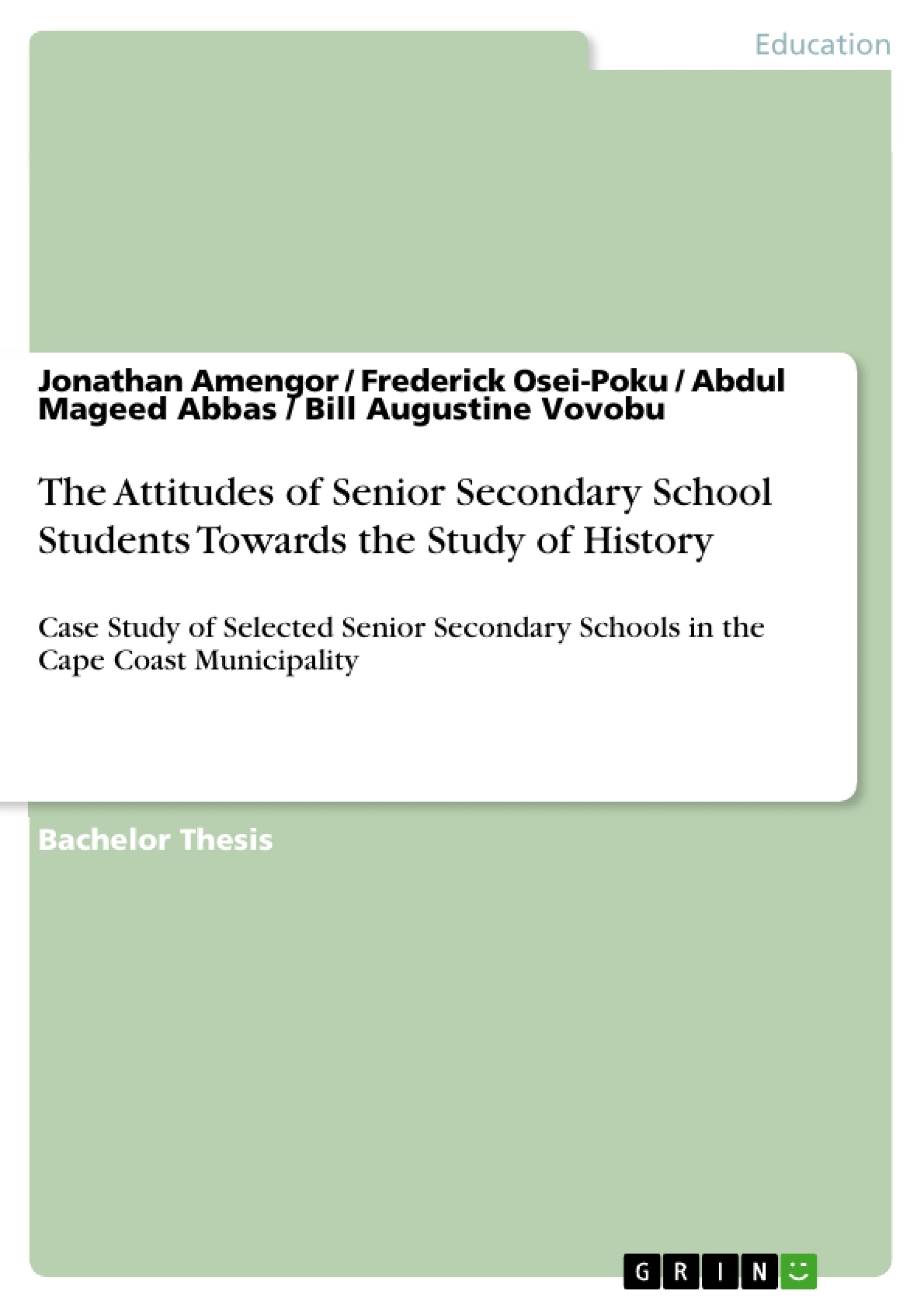Knowledge of one’s heritage is one of the most cherished ideals in a society. This creates the awareness of how the people lived in the past - the way they dressed, the way they danced, the food they ate, their economic resources and how they passed on the above cultural values to their future generations. In many African indigenous settings, for instance, the cultural heritage such as festivals, religion, languages spoken and even the type of education they practiced all have their meanings and have evolved from the past. It is therefore obvious that to understand the present, we must definitely know the past. It is only based on the knowledge of the past that we can predict the future and live fruitful lives based on the past circumstances.
The primary aim of History teaching in Africa is to put the African child into the stream of History from which he has been absent for so long. People do not accord it the necessary attention it deserves. This is fundamentally due to the little importance attached to it. Consequently, students are not aware of their past and yet they seemed not to be perturbed.
A questionnaire was administered to 180 respondents were randomly sampled from three High Schools in Cape Coast Municipality of Ghana. SPSS was used to conduct descriptive statistics on the data collected from the respondents. The results show that students offer history because of their interest in the subject. Their offering history has nothing to do with advice from parents, friends and its easiness as a subject of study. Unfortunately, the resources available in the three High schools are awfully inadequate. The predominant teaching method is a combination of lecture method, dictation of notes and the use of visual aids and the discussion method. However, another equally important methods such as excursion were not being employed in the teaching of history. This may be due to financial constraints and lack of cooperation from the schools' administration. It is therefore recommended that history as a subject should be made compulsory for at least a year in the High Schools. The government must also resource teachers to deliver the subjects using all the necessary teaching methods. Teachers of the subjects should also improvise in the face of lack of resources in teaching the subject.
Inhaltsverzeichnis (Table of Contents)
- CHAPTER ONE: PROBLEM
- 1.0 Introduction
- 1.1 Background to the Study
- 1.2 Statement of the Problem
- 1.3 Purpose of the Study
- 1.4 Research Questions
- 1.5 Significance of the Study
- 1.6 Scope
- 1.7 Organization of the Study
- CHAPTER TWO: REVIEW OF LITERATURE
- 2.0 Introduction
- 2.1 Theoretical Review
- 2.2 Empirical Review
- (a) Definition of the Concept Attitude
- 2.3 The Formation of Attitude
- 2.4 Factors Accounting for Attitudinal Change
- 2.5 Problems of Studying History
- 2.6 Suggested Ways of Teaching History
- CHAPTER THREE: METHODOLOGY
- 3.0 Introduction.
- 3.1 Sampling
- 3.2 Sampling Procedure
- 3.3 Research Instrument
- 3.4 Limitations
- 3.5 Data Analysis Procedure
- CHAPTER FOUR: ANALYSIS AND DISCUSSION OF DATA
- 4.0 Introduction
- 4.1 Personal Data of Respondents
- 4.2 Inappropriate Methods of Teaching
- 4.3 Appropriate Methods of Teaching
- 4.4 Reasons for Choosing History
- 4.5 The Use of Instructional Resources
- 4.6 Motivation in History Teaching
- 4.7 Problems in Studying/ Learning History
- 4.8 Importance of History
- 4.9 Personal Opinion of Respondents
- CHAPTER FIVE: SUMMARY, CONCLUSIONS AND RECOMMENDATIONS
- 5.0 Introduction
- 5.1 Summary
- 5.2 Conclusions
- 5.3 Recommendations
- 5.4 Further Research or Study
Zielsetzung und Themenschwerpunkte (Objectives and Key Themes)
The study aims to investigate the attitudes of senior secondary school students towards the study of history in selected schools within the Cape Coast Municipality. The study seeks to understand the factors influencing these attitudes, including teaching methodologies, the use of instructional resources, and student perceptions of the subject's importance.
- Students' attitudes towards the study of history
- Factors influencing student attitudes towards history
- The role of teaching methodologies in shaping student attitudes
- The use of instructional resources in history education
- The perceived importance of history among senior secondary students
Zusammenfassung der Kapitel (Chapter Summaries)
Chapter One introduces the research problem, outlining the background of the study, its purpose, and research questions. It also highlights the significance of the study, its scope, and the organization of the research. Chapter Two reviews existing literature related to the study's topic. This chapter explores the theoretical framework and empirical findings on student attitudes toward history, including factors influencing those attitudes, problems in studying history, and suggested ways of teaching the subject. Chapter Three delves into the methodology employed in the study. It discusses the sampling procedure, research instruments, limitations, and data analysis methods. Chapter Four presents and analyzes the collected data, exploring various aspects of students' attitudes toward history, such as teaching methods, instructional resources, motivation, and perceived importance of the subject.
Schlüsselwörter (Keywords)
The key themes and concepts explored in this study include student attitudes toward history, teaching methodologies, instructional resources, motivation, and the perceived importance of history. The study also investigates factors influencing students' attitudes, such as teaching methods and the use of resources. The research focuses on understanding the perspectives of senior secondary school students in the Cape Coast Municipality, using data from a case study approach.
- Quote paper
- Jonathan Amengor (Author), Frederick Osei-Poku (Author), Abdul Mageed Abbas (Author), Bill Augustine Vovobu (Author), 2007, The Attitudes of Senior Secondary School Students Towards the Study of History, Munich, GRIN Verlag, https://www.grin.com/document/380427



